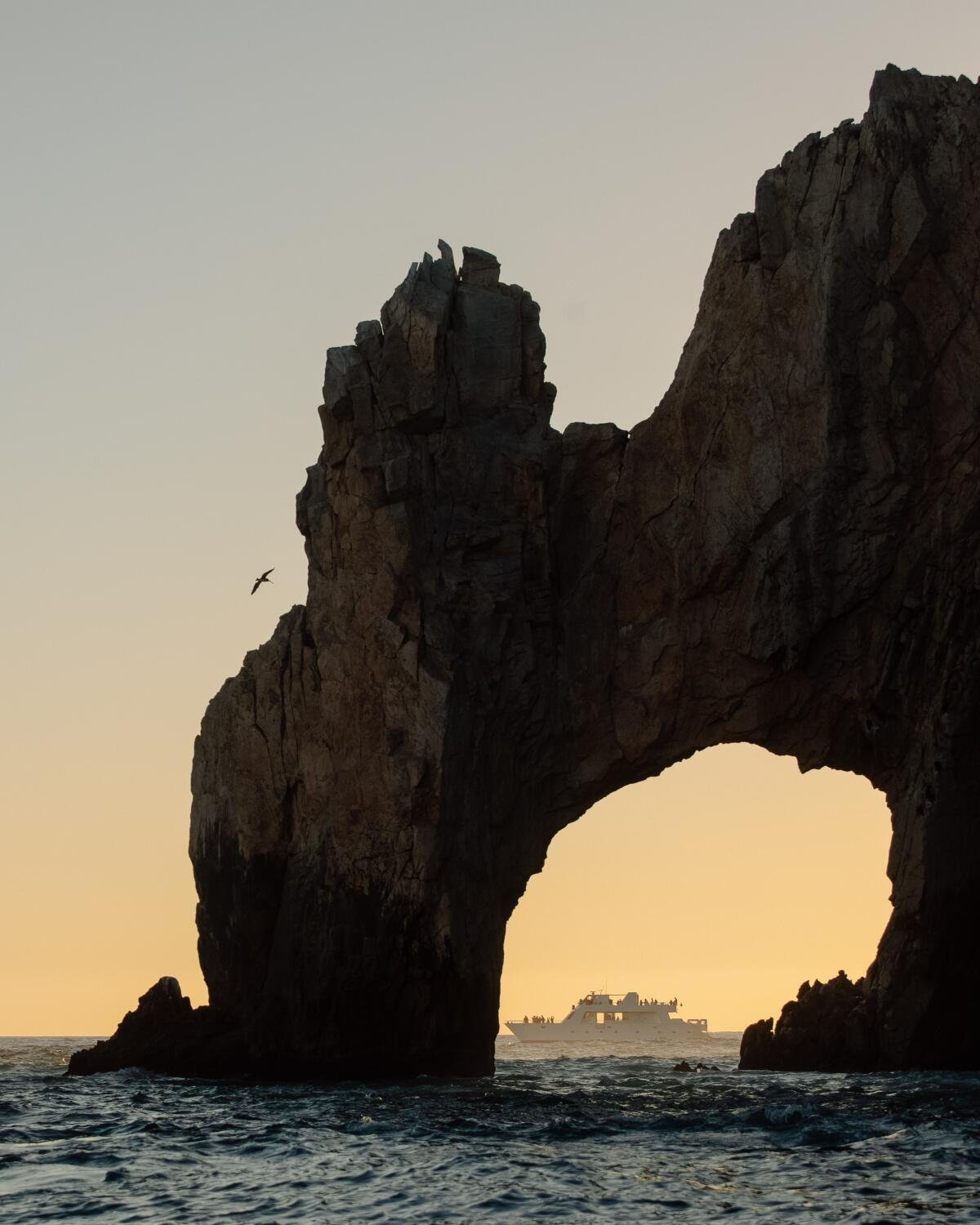Is this the moment for a spring break in Mexico or Canada?
The idea might seem iffy as the Trump administration confounds its neighbors by toggling tariffs on and off and throwing countless jobs into doubt. Yet for travelers, industry veterans say, this seesaw experience won’t make an immediate difference to the cost of flights or lodgings in Mexico or Canada.
Because the tariffs are based on goods crossing borders, not people, they don’t directly affect airlines and hotels. But the tariff battle may also bring indirect effects that could bump up travelers’ costs, anxieties or both.
In all three countries, restaurants may soon be paying more for ingredients and passing along the expense. In the Canadian province of Ontario, Premier Doug Ford ordered government-run liquor stores to take American alcohol products off their shelves.
At the marketing organization Destination Vancouver, communications director Suzanne Walters said some U.S. groups “are putting a hold on their near-term events” in Vancouver — not because of tariffs but “because of job losses or cuts in government funding.”
When it comes to leisure travelers, “it’s business as usual,” she said. “Our focus remains on being open and welcoming to all our visitors and that certainly includes our American friends.”
People wait at Tom Bradley International Terminal at LAX. Last month, as the tariff conflict was heating up, Air Canada announced that it would reduce service to multiple U.S. cities.
(Luis Sinco / Los Angeles Times)
But the relationship is increasingly complicated. A March 5 “Trump Tariff Tracker” web survey by Canadian polling firm Leger found that while 60% of Americans surveyed said they considered Canada an ally, just 31% of Canadians said the same of the U.S. — and 30% said they now see the U.S. as an enemy.
Meanwhile in southern Baja California, “we have not seen any effect on bookings,” said Rodrigo Esponda, managing director of the Los Cabos Tourism Board. In fact, Esponda said, the number of flights from California into Los Cabos is due to rise with the addition of nonstop service from Oakland on March 20 and Ontario in June.
“Nobody,” Esponda said, “is connecting the ongoing [tariff] conversations with the hospitality element in the destination.”
March is the destination’s busiest month of the year, Esponda said, attracting more than 300,000 visitors. As annual tourism to Los Cabos has grown from 2.7 million in 2019 to 3.7 million in 2024, average hotel rates there have risen to $450 a night.
The tariff hostilities, simmering for weeks, escalated on Tuesday, when the Trump administration imposed a 25% tariff on imports from Mexico and Canada, alleging that those countries are both soft on drug smugglers, though statistics show Canada’s role in U.S. drug smuggling is minimal.
Canada then said it would phase in 25% tariffs on many U.S. goods over the next three weeks. Mexican President Claudia Sheinbaum, who warned that nobody would win under Trump’s proposal, said Mexico would retaliate and called Trump’s claims of Mexican drug-trade corruption “offensive, defamatory and without support.”
Next, Trump moved to exclude automobiles from the measures. And then on Thursday — two days into the new tariffs — Trump reversed course and said he would delay tariffs on many Canadian and Mexican goods until April 2. (Trump also has boosted tariffs on China by 10%, with retaliation by China expected in the coming days.)
Airfares and hotel rates aside, the posturing and rhetoric have already turned off some prospective travelers, especially in Canada.
Another Leger survey found that 16% of Canadian respondents had canceled trips to the U.S., while 1% of American respondents had canceled trips to Canada.
If higher tariffs are imposed and last several weeks or more, travel industry veterans say they would expect a slump in cross-border business travel, a key source of income for airlines and hotels. With fewer business travelers, airlines might reduce the number of flights, charge leisure travelers more or charge less and hope to stimulate demand.
“If they see that kind of drop-off, you’ll see smaller planes and less frequency and higher costs,” said John DiScala, publisher of the JohnnyJet.com newsletter and a frequent visitor to Canada. DiScala noted that last month, as the tariff conflict was heating up, Air Canada announced that it would reduce service to multiple U.S. cities.

A boat is framed by the Arch of Cabo San Lucas, a granitic rock formation at the southern end of Cabo San Lucas.
(Brian van der Brug / Los Angeles Times)
In the much longer term, higher tariffs would boost the cost of building, buying and leasing jets, putting stress on airlines to boost prices.
Even if the current standoff cools down, bad blood could linger, several industry-watchers have said — and not just in Canada. One snap survey, conducted the day after President Trump’s address to Congress, found that 72% of veteran travelers expect that Americans abroad “will be less welcome and perceived more negatively” as a result of Trump’s global trade policies.
The survey, conducted by Global Rescue, a provider of medical care, security and risk-management services to travelers, queried more than 1,100 travelers after President Trump’s speech to Congress Tuesday.
“The data is clear — travelers are expecting a shift in how they are received abroad,” said Dan Richards, CEO of the Global Rescue Companies, in a prepared statement. “This doesn’t mean Americans should cancel their travel plans, but they should be aware of their surroundings, practice cultural sensitivity, and take proactive steps to mitigate potential risks.”
On March 3, openjaw.com reported that FlightCentre Travel Group Canada had seen a 40% drop in Canadians booking leisure trips to the U.S.
Still, when it comes to Canadian hosts’ attitude toward American visitors, DiScala said he didn’t expect a lot of fireworks. “Will Americans be welcome? All my Canadian readers said they will be, unless they wear a MAGA hat or ‘51st state’ shirt,” he said. “They don’t think that’s funny at all. And I don’t blame them.”
Meanwhile in Mexico, there’s another tariff situation for travelers to keep in mind. In December 2024, Mexico’s Senate approved a $42-a-head tax on inbound foreign cruise passengers, to take effect July 1.
The move drew protests from cruise lines but is far from unique. Foreign tourists arriving in Mexico by air were already being assessed a comparable tax. Also, in the last two years, destinations in New Zealand, Greece and Iceland have imposed or boosted taxes on visiting cruise passengers.







